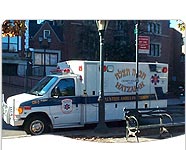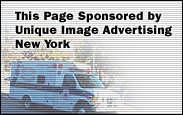




 STAY OFF ICE ON LAKES AND PONDS New Yorkers are warned against going onto or near the ice of ponds and lakes. Determining the strength of ice is extremely difficult, especially for an untrained individual. Ice must be at least six inches thick before it can maintain the weight of a person, and to freeze to the right thickness, the temperature must be well below freezing for weeks. Ice strength is affected by the depth of the water, the size of the water body, the water’s chemistry, the distribution of weight on the ice, and local climatic factors. To remind people of the dangers of thin ice, Parks & Recreation posts warning signs along the perimeter of the City’s lakes and ponds. Special ladders and ropes are also installed around the edges for trained personnel to use in the event of an emergency. New York City's Parks & Recreation offers the following Ice Safety Tips:
The following ice-skating rinks in parks throughout the city offer a safe way to celebrate the cold weather: Wollman Rink and Lasker Rink in Central Park, Abe Stark on Coney Island, Kate Wollman Rink in Prospect Park, City Building in Flushing Meadows-Corona Park, and War Memorial on Staten Island. As soon as the ice is strong enough, Parks & Recreation will designate safe-skating areas in large spray shower basins and other shallow water spots throughout the five boroughs. Signs will be clearly posted to show that these areas are safe for winter sports. For locations and times of winter activities in New York City parks visit www.nyc.gov/parks.
The above is for general informational purposes only. Always consult your
physician regarding specific medical issues and call Hatzalah or your local
ambulance service in the event of an emergency.
|
Home - About Us - Courses - Donate - Members - Safety Tips - Medical Digest
What is an Emergency? - Contact Us - Member Login
© Copyright 2003 - 2004 Hatzalah of Crown Heights
Design by Unique Image Advertising